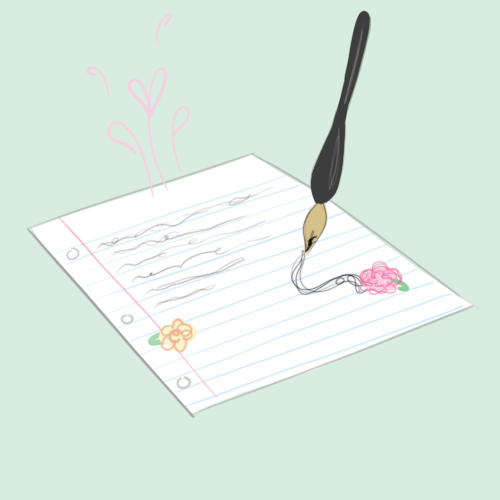Start treating writing as a process, not a singular race to perfection
By Adhithi Anjali — arts@theaggie.org
We’ve all been there — in the only seat you could find, hunched over your laptop, convincing yourself that now you’re going to get it together. If you could just sit down, maybe in the library — or no, the atmosphere of the coffee shop will definitely get you going — the essay will spill out from your head. But it doesn’t. Instead, you’re writing a word, deleting, rewriting, rewording and searching up Thesaurus.com as you trap yourself in the perpetual loop between writer and editor.
You desperately try to lay down each syllable with enough precision that your future self won’t regret it, but maybe it’s okay if they do. Now might not be the time when you establish yourself as the perfect writer, whether in personal or academic works. But, you can work towards being the disciplined essayist you need to be by learning to embrace your bad writing.
Learning to shut down your inner critic, the voice that is convinced you do not have enough research, enough knowledge or enough skill to get your work done, is the first step. The fact is, you do not know if this criticism is warranted until you actually start writing.
The goal has to shift from trying to fulfill an ideal breadth of knowledge to just getting started. If you find yourself struggling more than usual, try stepping back and simply writing out your thoughts. Empty all the ideas from your mind, no matter how tangled or unfinished, onto the page.
Whether it comes to essays, fiction or poetry, the intention of throwing your mind at the wall is to unravel your own insecurities when it comes to filling a page. It is about treating writing as a creative exercise, a way for you to reorder ideas in your brain. This is a game won with all your cards on the table, so there is no need to hide ideas from your own paper.
This kind of writing technique might look like just writing down every sentence, phrase or word that crosses your mind within a certain timeframe. Be warned, the result might be rather disappointing — you probably will not end with a magically in-depth and surprisingly intelligent masterpiece. Rather, the accomplishment will be in the fact that you actually committed to writing. Change the purpose of writing from a method of flaunting your intelligence to a method of communicating the frenzy of your mind. The bonus, after all this, is that you will have generated the foundations of your work.
By embracing your terrible writing, you can turn something paralyzingly difficult into something mindlessly easy. Your first draft will highlight the ingenuity of your mind, producing a visual representation of your ability to build connections and generate exciting ideas on your own. But, how do you refine this messy draft into the work you initially sat down to make?
Now, you bring that critical scholar back in. Yes, the one who stalled you for so long. But at this stage, they actually have material to mold and tinker with — something to critique. This is the stage where you find the holes in your analysis or your story that would have stumped you if you tried to write and edit simultaneously, as we all have tried to do. Separate and organize your ideas, add in those transitional phrases your professor will love so much and focus on fluency rather than content.
Ultimately, it is just a matter of breaking the writing process into multiple jobs and allowing yourself to create a bad piece of work for the sake of creating. You will need to churn out something, but you can make the journey a bit more bearable when you give in to the rambling creative inside of you.
Written by: Adhithi Anjali — arts@theaggie.org




